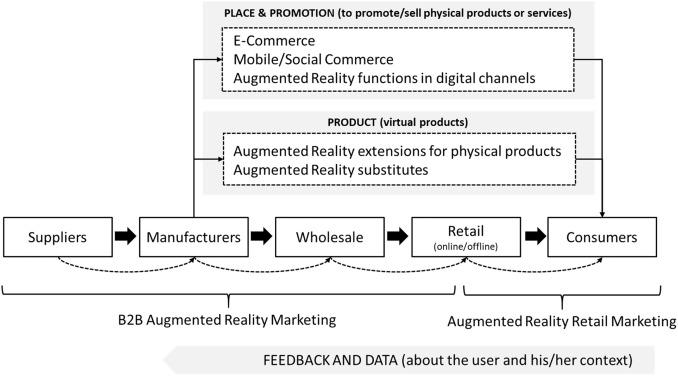Top Education Requirements for marketing Communications Specialist: Skills & Qualifications Explained
Are you aspiring to land a dynamic Marketing communications Specialist job at a university,college,or school? Weather you’re passionate about education technology or eager to craft compelling campaigns that engage students and educators,understanding the requirements,skills,and qualifications for this pivotal role can set you on the path for career success. In this guide,we’ll thoroughly explore what universities and schools expect from candidates,plus tips to build your expertise and maximize your job prospects in education marketing.
What Does a Marketing Communications Specialist Do in Education?
A Marketing Communications Specialist at academic institutions plays a vital role in promoting programs, services, and events using effective communication strategies. By leveraging their expertise in education technology and digital marketing, these professionals connect schools with their target audiences—students, parents, faculty, and the wider community. Responsibilities ofen include:
- Developing and executing marketing campaigns for academic programs
- Managing social media platforms and digital content
- Coordinating events and outreach activities
- Optimizing internal and external communications with stakeholders
- Creating press releases, newsletters, and promotional materials
To excel in this role, both technical competence and creative vision are essential.
Key Education Requirements for Marketing Communications Specialist Jobs
Here’s what colleges, universities, and schools typically look for when hiring Marketing Communications Specialists in education technology:
1. Bachelor’s Degree (essential)
The foundation for most marketing communications roles is a bachelor’s degree.Relevant fields include:
- Communications
- Marketing
- Public Relations
- Journalism
- English
- Education Technology (for some specialized roles)
Some employers may prefer degrees supplemented by coursework in digital media, strategic communications, or educational studies.
2. Advanced Degrees (Favorable)
While not always required, the following credentials can give candidates a competitive edge:
- master’s degree in Communications, Marketing, Educational Leadership, or Education Technology
- Graduate certificates in Digital Marketing, Content Strategy, or Social media Management
advanced qualifications can lead to senior roles or more specialized positions within university communications departments.
3. Specialized Training & Certifications
Continuous learning through industry certifications can boost your marketability:
- Google Analytics or Google Ads Certification
- HubSpot Content Marketing or Inbound Marketing Certification
- Social media Certified Professional (Facebook, LinkedIn, etc.)
- Certified Education Technology Specialist (for EdTech-specific roles)
Such certifications provide concrete proof of digital skills, especially valuable for those focusing on digital communications within academic environments.
Essential Skills for Marketing Communications Specialists in Education Technology
In addition to formal education, skillsets are critical. Here’s what institutions desire:
core Competencies
- Written & Verbal Communication: Mastery in drafting engaging messages for diverse audiences
- Digital Marketing: Proficiency in using social media,email marketing,and web content management systems
- Graphic Design: Ability to use programs like canva,Adobe Creative Suite,or similar tools for visually appealing content
- Analytical Skills: Competence in measuring campaign success and adapting strategies using analytics tools
- Project Management: Skilled in organizing workflows,managing deadlines,and coordinating teams across departments
- Creativity & Storytelling: Capacity to craft compelling narratives that reflect school values and missions
Technical Skills (Increasingly Essential for EdTech Roles)
- SEO (Search Engine Optimization): Knowing how to optimize content for better search engine visibility
- Content Management Systems (CMS): Familiarity with platforms like wordpress,Drupal,or proprietary academic systems
- Video Production & Editing: Ability to create,edit,and distribute video materials for marketing and communication purposes
- Email Automation: Experience with tools such as Mailchimp,Constant Contact,or Salesforce Marketing Cloud
Soft Skills
- Collaboration: Working efficiently with faculty,management,and IT teams
- Adaptability: Thriving in fast-paced,evolving environments (especially amid EdTech advancements)
- attention to Detail: Ensuring communications are clear,accurate,and error-free
- Problem-Solving: Managing challenges creatively and resourcefully
Relevant Work Experience
Most universities and colleges prefer candidates with at least 2-3 years of experience in:
- Educational communications or school marketing roles
- Digital content creation or public relations within academic settings
- Event planning and program promotion
- Collaborative projects with faculty,administration,or student organizations
internships,volunteer efforts,or freelance assignments in education marketing can definitely help bridge any experience gaps for new graduates.
Benefits of Pursuing a Career as a Marketing Communications Specialist in Education Technology
Here’s why the role is both rewarding and strategic for those seeking to make an impact:
- Meaningful Work: Influence the academic journey of students and foster community engagement
- Career Growth: Opportunities to advance into leadership, brand management, or EdTech strategy positions
- Creative Expression: Freedom to innovate and experiment with new digital tools and storytelling formats
- Job Security: Educational institutions continually need skilled communicators to remain competitive and attract enrollments
- Learning Ecosystem: Access to further training, academic resources, and interdisciplinary collaborations
Practical Tips to Enhance Your Request and Stand Out
- Build a Digital Portfolio: Showcase writing samples, campaign case studies, and multimedia projects relevant to education marketing.
- Stay updated: Keep current with edtech trends, marketing platforms, and new communication channels.
- Network: Attend webinars, local education conferences, and connect with professionals in education communications.
- Volunteer: Collaborate on school or college outreach programs, event planning, or digital content creation.
- Highlight Transferable Skills: Emphasize project coordination, analytics, or technology expertise—even from non-education sectors—to demonstrate versatility.
Conclusion
Pursuing a career as a Marketing Communications Specialist within universities, colleges, or schools offers a unique blend of technology, creativity, and mission-driven work. With the right education background, practical skills, and dedicated experience, you can make a powerful impact on student recruitment, institutional branding, and digital conversion in academic settings. By investing in your qualifications, skill advancement, and professional network, you’ll be well-prepared to thrive in the exciting world of education technology marketing communications.
Use this guide as your roadmap—refine your credentials, grow your digital expertise, and get ready to inspire the next generation within academic communities.

